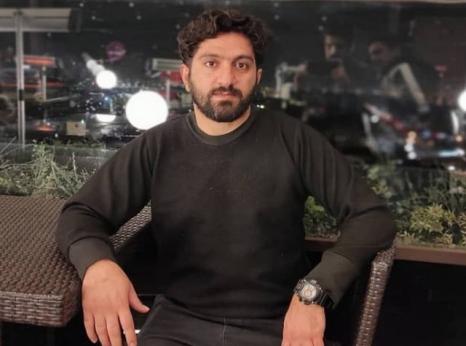Iran: Tortured Iranian Kurdish Man Sentenced To Death

From September to December 2022, an unprecedented popular uprising against the Islamic Republic system took place across Iran sparked by the death in custody on 16 September 2022 of Zhina/Mahsa Amini days after her arbitrary arrest by Iran’s “morality” police. Iranian authorities extensively and unlawfully fired live ammunition, metal pellets and tear gas and subjected protesters to severe beatings. Hundreds of protesters and bystanders were unlawfully killed by security forces, including dozens of children, and thousands sustained injuries for which many did not seek medical care due to fear of arrest. More than half of those killed belonged to the oppressed Baluchi minority in Sistan and Baluchestan province and the Kurdish minority in the provinces of Kurdistan, Kermanshah and West Azerbaijan. From early November 2022, Kurdish human rights groups reported a “highly securitized atmosphere” in Kermanshah province marked by the extensive deployment of security forces. This development underscored the authorities’ increased repression in anticipation of protests between 15-19 November 2022 to commemorate the protest killings of November 2019.
To date, the authorities have arbitrarily executed seven men in connection with the “Woman Life Freedom” protests after grossly unfair trials marred by torture allegations. On 19 May 2023, Iranian authorities executed Majid Kazemi, Saleh Mirhashemi and Saeed Yaghoubi, who were put on trial in December 2022 and January 2023, and sentenced to death on the vaguely worded and overly broad charge of “enmity against God” (moharebeh). The authorities imposed the charge based on unfounded allegations stemming from torture-tainted “confessions” that the men used firearms in an incident during protests during which three members of the security forces died. However, they did not charge them or convict them of murder for these deaths. On 10 May 2023, the authorities announced that their convictions and sentences had been upheld by the Supreme Court despite due process violations, significant procedural flaws, lack of evidence, and torture allegations that were never investigated. Amnesty International obtained information that the three were subjected to torture while forcibly disappeared and forced to make incriminating statements.
Torture is a violation of international law and its use is prohibited under all circumstances. Statements elicited as a result of torture, ill-treatment or other forms of coercion must be excluded as evidence in criminal proceedings, except those brought against suspected perpetrators of such abuse. In view of the irreversible nature of the death penalty, the proceedings in capital cases must scrupulously observe all relevant international standards protecting the right to a fair trial. Anyone arrested or detained on a criminal charge must be treated in full compliance with Iran’s human rights obligations including rights to a fair trial. These include the rights to choose one’s own lawyer; to access effective legal assistance from the time of arrest and throughout the pre-trial and trial proceedings; to be brought promptly before an ordinary civilian judge; to challenge the lawfulness of detention before an independent, impartial tribunal; to be presumed innocent; to remain silent and not to be compelled to incriminate oneself or to confess guilt; to obtain full access to relevant evidence; to not be detained on vague charges; to examine and cross-examine witnesses; to receive a fair, public hearing before a competent, independent and impartial tribunal; and to be provided with a public, reasoned judgement. Amnesty International has consistently documented a pattern of systematic violations of the rights to a fair trial in Iran from the time of arrest and throughout the investigation, trial and appeal proceedings. Courts routinely ignore allegations of torture and other ill-treatment, without ordering an investigation, and rely on torture-tainted “confessions” to issue convictions and sentences, including in death penalty cases. Under international law, the imposition of the death penalty following an unfair trial constitutes an arbitrary deprivation of life.
Ethnic and religious minorities in Iran suffer entrenched discrimination in law and in practice. Iranian authorities curtail the access of ethnic minorities to education, employment and political office. In 2023, Amnesty International has also documented how the Iranian authorities have intensified their use of the death penalty as a tool of political repression against ethnic minorities from Iran’s Kurdish and Baluchi minorities. Religious minorities, including Yaresan, also are subjected to discrimination in law and practice, including in access to education, employment, child adoption, political office and places of worship.
Amnesty International opposes the death penalty in all cases without exception. The death penalty is a violation of the right to life and the ultimate cruel, inhuman and degrading punishment. Amnesty International has consistently called on all states that retain the death penalty, including Iran, to establish an official moratorium on executions, with a view to completely abolishing the death penalty.